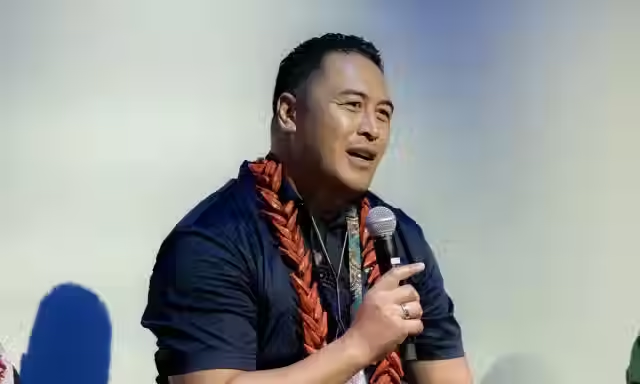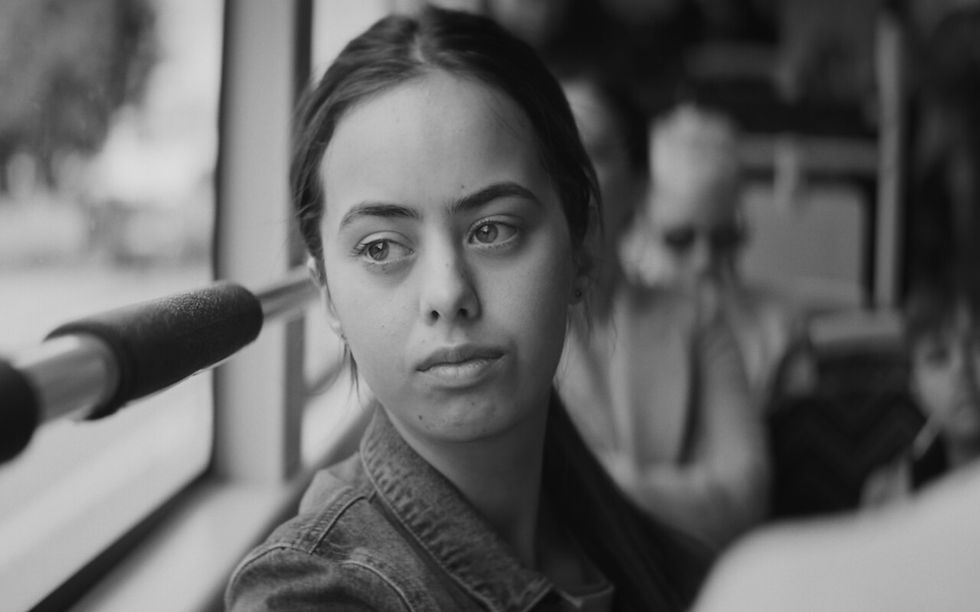When the Village Leads: Pacific Economy Insights from the Global Pacific Solutions Summit 2025
- Sabrina Tian
- Apr 23, 2025
- 6 min read
Updated: Apr 24, 2025

The Pacific economy is more than numbers. It's about people, purpose, and systems that recognise culture and community. This sentiment was echoed through every session of the 2025 Global Pacific Solutions Summit, hosted by Le Va, Aotearoa New Zealand's Pasifika primary prevention organisation. Bringing together thought leaders in health, education, disability, and social policy, the summit offered a moment of reflection, resistance, and recalibration for the Pacific economy, centred on community power, data sovereignty, and wellbeing.
At ECG, we see these insights as not just timely but transformative. As experts in the Pacific Economy, we unpack what this Summit revealed about the future of health, education, business, arts, and leadership in Aotearoa New Zealand and across the Moana.
Here are the five key takeaways professionals across the Pacific economy need to know.
1. Safeguarding Pacific Data and Stories: Cultural Capital as Economic Power
Data is not neutral. Pacific communities are asserting a crucial truth: data is identity, and stories are capital. When held by Pacific hands and told in Pacific voices, it becomes cultural capital—a powerful economic asset that drives policy, funding, and transformation.
Why Data Sovereignty Matters:
Pacific data sovereignty is non-negotiable. The right to collect, own, and interpret data must rest with communities themselves.
Data must reflect lived realities: Cultural norms, languages, literacy, faith, and spiritual frameworks need to be built into data tools and evidence systems.
Story Ownership Equals Influence: When Pacific peoples control their narratives, they influence decision-making, budgets, and systems.
Evidence as Advocacy: Culturally collected data supports culturally aligned interventions, making a compelling case to governments and funders.
Whats the Real World Impact?
Pacific-led consultations like the Disability Action Plan surfaced key community needs and existing grassroots solutions.
Community stories, not just statistics, highlighted how fragmented services and diagnostic barriers are hurting families.
2. Strengthening Pacific Health: Data, Development & Whānau-Led Design
Pacific health models are inherently holistic. They blend clinical insight with cultural identity, family structures, and spirituality. The Summit made clear: Pasifika wellbeing cannot be delivered through one-size-fits-all systems. Health systems must work with communities, not around them. Dame Dr Teuila Percival (Consultant Paediatrician and Associate Professor in Department Paediatrics, University of Auckland) and Dr Corina Grey (Deputy Secretary - Policy & Insights, Ministry for Pacific Peoples) reminded us that equity isn't just a target—it's a method, rooted in culture and kinship.
Key Principles:
Culturally Grounded Care: Pacific values, faith, and worldviews are essential elements of effective health care.
Evidence with Soul: Grandparents, church, language, and identity were identified as vital determinants of child wellbeing. This was further reinforced by the presentation on "Va o Tamaiti, a relational resilience framework for Pacific child wellbeing" by Malaetogia Dr Jacinta Fa’alili Fidow (General Manager – Moana Research, Moana Connect), which emphasizes the importance of stable, caring adult relationships and ecological influences on resilience.
Policy for People: From infrastructure to parenting programmes, upstream interventions are critical to support intergenerational wellbeing.
System Strategies for Success:
Social Capital Investments: Investing in thriving community centres and group-based parenting initiatives improve long-term health.
Urban Demographics Matter: With over 62% of Pacific peoples living in Auckland, location must guide funding and services.
Invest in Pacific-led models of care that centre relationships, spirituality, identity, and the heart language of communities. Dr Jacinta Fa’alili Fidow also highlighted the Fa’afaleetui Framework, drawing on Samoan cultural perspectives, which underscores the importance of multiple viewpoints in understanding complex issues.
Utilise community-based solutions like father support programmes, home visits, and church partnerships to build social capital. Qualitative interviews (Talanoa) explored various aspects of resilience, including relationships, social skills, cultural settings, and the impact of COVID-19, revealing insights such as high community participation, internet safety concerns, and increased depressive symptoms.
Design infrastructure with children in mind: Systems must be built around the inherent vulnerability and potential of Pacific children. Healthy cities must prioritise walkability, clean air, and safe communal spaces.
Dame Dr Teuila Percival quoted eminent epidemiologist Sir Geoffrey Rose: “The primary determinants of disease are mainly economic and social and therefore its remedies must also be economic and social.”
3. Redesigning Disability Support: When the Village Leads the System
Disability support in Aotearoa is too often delivered to Pacific communities, rather than created with them. The Summit called for a bold reimagination of support systems that honour Pacific leadership and values. Insights were shared from Nalei Taufa (Research operations Manager, Te Poutoko Ora a kiwa, Waipapa Taumata Rau, University of Auckland), Pakilau Manase Lua (Ringa Huti Punga, Pasifika Equity Lead, Le Va) and Leuluaiali’i Catherine Poutasi (Director Commissioning, Disability Support Services).
Through the evidence presented, we understood what’s not working:
Fragmented systems that increase stress on whānau
Barriers to diagnosis due to cost and lack of access
Exhausted caregivers with little structural recognition
Cultural disconnect between mainstream services and Pacific needs
Through the presentations we understood what needs to change:
Pacific-designed Disability Action Plans- solutions built by Pacific people for Pacific people.
Whānau Centred funding models- enabling the power of self-directed funding from lived insights shared.
Cultural competency as a minimum standard- Every touchpoint in the system must reflect or at least understand Pacific values.
True lifespan transitions support.
Data sovereignty to ensure equitable funding and visibility.
Recommendations:
Pacific governance and leadership across ministries
Make cultural safety mandatory in service provision
Protect Pacific data sovereignty
Scale existing Pacific-led initiatives
Redesign disability funding (Enabling Good Lives) to reflect Pacific realities
It was also reassuring to hear what's already working in the disability space including groups such as PASG (Pacific Autism Support Group), Fale Pasifika Te Tai Tokerau, Pacific clinicians working from within the system and Churches and families as support hubs.
4. Moana Dreaming: Culture, Activism, and Wellbeing as Economic Resistance
The plenary, "Moana Dreaming," reminded us of the deep connections between activism, culture, and economic systems. This session explored wellbeing through the lens of creativity, resistance, and community care. Convened by Mati Dr Elizabth Mati-Tevaga (General Manager, Le Va) and featuring Dr Emalani Case (Senior Lecturer - Māori and Pacific Studies, Waipapa Taumata Rau - The University of Auckland), Prof. Jioji Ravulo (Professor and Chair of Social Work and Policy Studies, University of Sydney), and Prof. Waikaremoana Waitoki (Associate Professor, Te Pua Wānanga ki te Ao Faculty of Māori and Indigenous Studies), this panel was a reminder that dreaming is not a passive act—it’s active and that storytelling and cultural expression should weave into a Pacific economic strategy.
Key themes from the panel:
Activism can be a form of wellbeing: Speaking out against racism and colonialism can nourish mental health and community standing.
Culture as Capital: Dr Emalani Case spoke of dreaming as an ancestral tool for resilience and strategy drawing from her lived experience as a Kanaka Maoli (Hawaiian) where protests against sacred site desecration have been led through cultural dreaming. These ancestral practices of dreaming can therefore be celebrated as tools of strength.
Creative Resistance: Embracing poetry, art, and storytelling as a way to sustain Pacific leadership in a world of systemic barriers.
Media Literacy: Navigating media with care was shared as a strategy for emotional resilience.
Intergenerational knowledge-sharing: A unifying thread, a way to sustain activism, teach resilience, and pass down joy.
“Our ancestors dreamed us into being. Now we must dream our future into reality.”
Dr Emalani Case
5. From Insight to Action—Building a Moana-Centered Future
These summit insights reaffirm a core truth: when the village leads, the system works and a Moana-centered economy means:
Back Co-Design and Governance: From health to education to disability, systems must be co-created with the communities they serve.
Data sovereignty as currency: Pacific peoples must own the data that reflects their stories, needs, and futures.
Investing in community networks and funding the village: Churches, clinicians, elders, and creatives are already doing the work—scale what already works—like PASG, Fale Pasifika, and Pacific clinicians.
Wellbeing as a serious economic metric: Joy, relationality, and cultural expression must be valued in how we assess success.
ECG’s Role:
ECG partners with communities, organisations and institutions to:
Develop evaluation strategies that incorporate both mainstream metrics of tangible success as well as culturally relevant determinants of progress that resonate with Pacific communities and external agencies alike.
Co-design community-led programmes that allow for a sense of authentic ownership and accountability, which will drive organic sustainability and scalability of the programme.
Strengthen policy with evidence and values with a sound business case approach to review and implementation, which ensures policies evolve over time and remain relevant and practical for those it is designed for.
🔗 Want to work with us or learn more? Contact ECG today and let’s co-create the future of Pacific prosperity Letstalk@ecg.nz.
#PacificEconomy #MoanaDreaming #PasifikaLeadership #LeVa #CulturalCapital #DataSovereignty #WhenTheVillageLeads




Comments